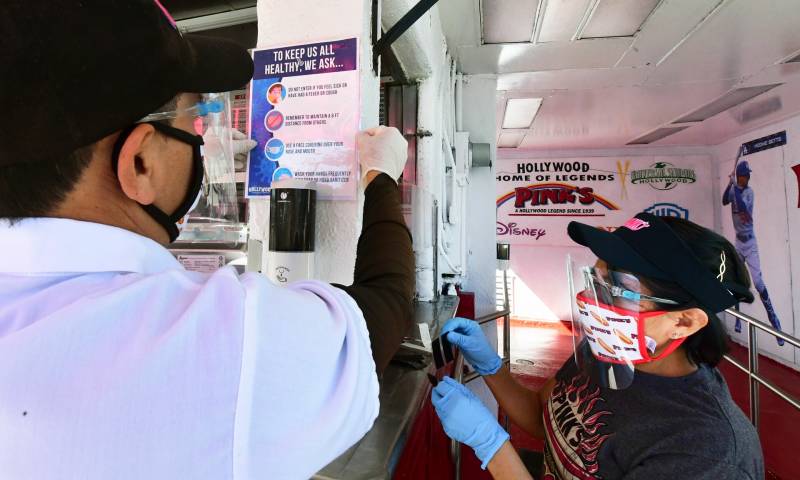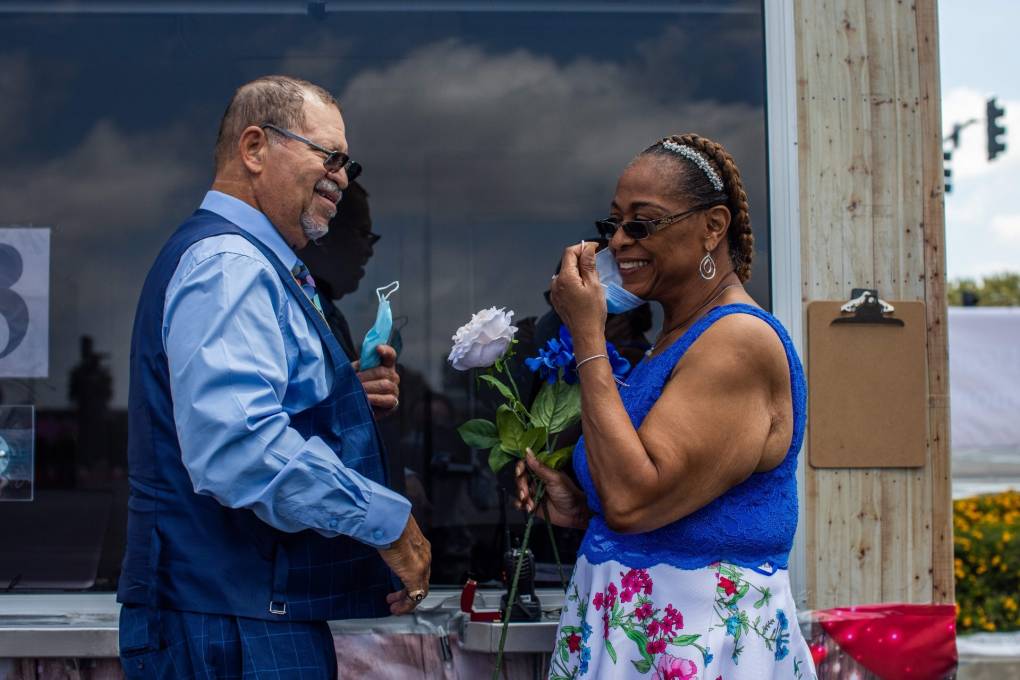'Employers Cannot Plan'
Helen Cleary, director of the Phylmar Regulatory Roundtable, a coalition of large businesses with major California operations, was among numerous business representatives urging the board to conform its rule with public health requirements.
"Employers cannot plan with this high level of uncertainty," she said. "We are disappointed and frustrated with the confusion, the process, the substance and the lack of leadership."
The workplace board's more restrictive approach puts Newsom in an awkward position as he battles a pending recall election, though he was reluctant to override a board that he appoints.
"The public doesn't draw a distinction between this board and the rest of the Newsom administration," Michael Miiller, California Association of Winegrape Growers government relations director, told board members before the vote. "What they hear is the Newsom administration say that wearing masks at work may be here to stay."
Pressure on the board built before the meeting when a dozen business groups, including the California Retailers Association and organizations representing manufacturers, farmers, tourism interests and other industries, sent a letter to Newsom asking him to rescind the board's regulations.
Requiring masks unless all are vaccinated in a workplace would "create yet another barrier to rehiring and reopening" at a time when "we need to be providing incentives to bring people back," they said. Moreover, they said requiring masks for people who are fully inoculated could lead the public to believe the vaccine isn't really effective.
'Outbreaks Are Still Occurring'
Board member Laura Stock said it is important to keep protecting employees who don't have a realistic choice but to go to work.
For instance, state data show that in the retail sector in the last 30 days "there were 70 outbreaks, more than two a day," said Stock, who directs the Labor Occupational Health Program at UC Berkeley. "Outbreaks are still occurring."
The idea of a continued workplace mask mandate has also been broadly supported by a range of unions representing teamsters, nurses, machinists, utility workers, engineers and school employees. Many advocates have stressed that the pandemic is not over, and that low-wage front-line workers have been disproportionately impacted.



